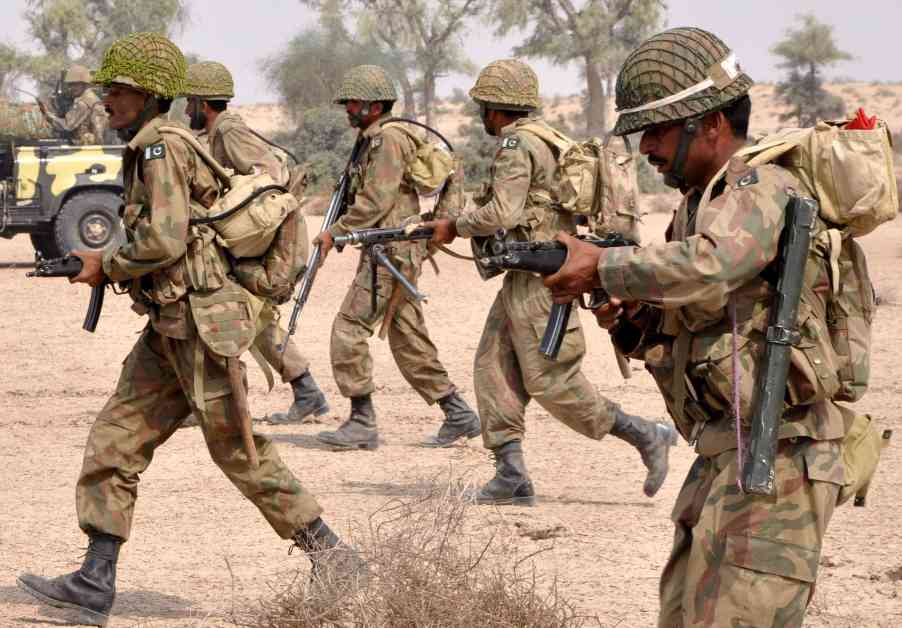In a recent intelligence-based operation (IBO) conducted by security forces in the South Waziristan District of Khyber-Pakhtunkhwa (K-P), 30 terrorists were neutralized, according to a statement from the military’s media wing on Tuesday. This successful mission comes on the heels of two separate operations last week that resulted in the elimination of 15 terrorists in K-P.
The operation, which unfolded in the Sararogha area on Monday, was prompted by intelligence reports indicating the presence of Khwarij militants in the region. The Inter-Services Public Relations (ISPR) reported that security forces swiftly engaged the militants, resulting in the demise of the 30 terrorists.
“In the course of the operation, our troops effectively engaged the Khwarij militants, leading to the elimination of thirty individuals,” the ISPR shared. A sanitization operation is currently underway to ensure that the area is free of any remaining threats. The ISPR underscored the unwavering commitment of Pakistan’s security forces to eradicate terrorism from the country.
This operation is part of a broader strategy to address terrorism in Pakistan, particularly in tribal areas where extremist groups have historically operated with impunity. By conducting targeted operations, the military aims to secure the region and prevent future terrorist activities.
Expert Insights on Counterterrorism Efforts
Dr. Ahmed Khan, a security analyst and counterterrorism expert, emphasized the significance of intelligence-based operations in combating terrorism. “Intelligence-driven operations are crucial for identifying and neutralizing terrorist threats before they can inflict harm on civilians or security personnel,” Dr. Khan explained.
He further highlighted the role of proactive measures in disrupting terrorist networks and preventing escalation of violence. “By swiftly responding to actionable intelligence, security forces can effectively dismantle terrorist cells and disrupt their operations,” Dr. Khan added.
Impact of Counterterrorism Measures on Civilian Populations
While the success of security operations in eliminating terrorists is commendable, it is essential to consider the broader implications of these actions on civilian populations in conflict-affected areas. The displacement of communities, destruction of homes, and disruption of livelihoods are often unintended consequences of military operations.
Ensuring that humanitarian aid reaches affected populations and that efforts are made to facilitate the safe return of displaced individuals are critical components of a comprehensive counterterrorism strategy. Balancing security imperatives with humanitarian considerations is essential for fostering stability and resilience in conflict-affected regions.
As security forces continue their operations to root out terrorism from Pakistan, it is imperative to maintain a holistic approach that addresses the underlying drivers of extremism while safeguarding the rights and well-being of all citizens. By prioritizing intelligence-driven operations, targeted interventions, and community engagement, Pakistan can make significant strides in enhancing security and promoting peace in the region.









